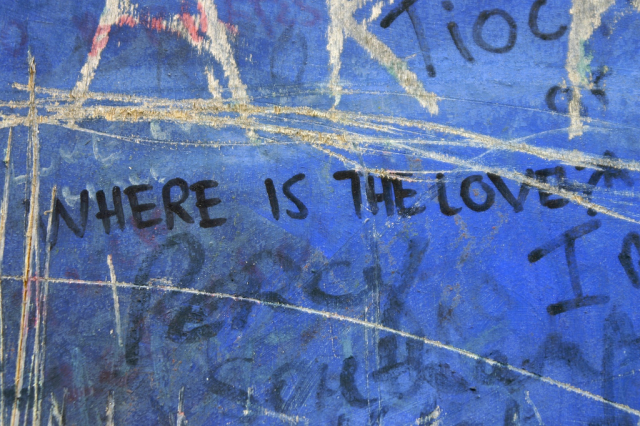Are we still sectarian, or the ‘race-hate capital’?

Community cohesion issues in Northern Ireland encompass the ‘traditional’ divide of Protestant/Unionist and Catholic/Nationalist and minority ethnic and majority communities. In their negative expression, relations between these groups are manifested as sectarianism and xenophobia or racism. Increasingly, the terms ‘community relations’ (i.e. relations between the ‘traditional’ majority communities in Northern Ireland) and ‘race relations’ (i.e. relations between majority and minority ethnic communities) have been conflated as ‘good relations’.
The term ‘race’ is no longer recognised as a valid term to describe ethnic differences between groups within the human race. ‘Race’ is used as a concept for understanding racism, i.e. a view that regards groups of people in hierarchical terms on the basis of ethnic difference. However, the terms ‘race relations’ and ‘racial equality’ are still often used in policy and legislation.
Attitudes and Trends
Figures from the Police Service of Northern Ireland (PSNI) over ten years (2004/05 to 2014/15) suggest there has been an increase in reported racist-motivated incidents (where there is no crime involved) and crimes, and a decline in sectarian incidents and crimes, although sectarian motivation remained more common than racist motivation. Racist motivation has remained relatively steady until a spike in 2014/15, whereas sectarian motivation peaked in 2009/10 before dropping again to the 2014/15 figure.
| 2004/05 | 2014/15 | |
| Racist motivated incidents | 813 | 1356 |
| Racist motivated crimes | 633 | 920 |
| Sectarian motivated incidents | 1701 | 1517 |
| Sectarian motivated incidents crimes | 1469 | 1043 |
According to results from the Northern Ireland Life and Times survey from 2004 and 2014, attitudes to mixing by religion in terms of work, housing, education and personal relationships have changed little or hardened over the ten years.
| 2004 | 2014 | |
| Would prefer a workplace with own religion only | 8% | 16% |
| Would prefer children went to school with own religion only | 34% | 34% |
| Would prefer to live in a neighbourhood with own religion only | 19% | 25% |
| Would mind (a lot or a little) if a close relative married someone of a different religion | 13% | 19% |
However, the Peace Monitoring Report for 2014 records a steep decline in ‘single identity’ wards (i.e. 80% of one religion) from 55% to 37% between the 2001 and 2011 Censuses, although there is evidence of patterns of segregation within wards. The same report states that 93% of children are educated in separate schools.
Policy
Following a consultation paper in 2003, and the analysis of consultation returns by two leading academics in 2004, the community relations policy A Shared Future was published in 2005. The Racial Equality Strategy 2005-2010 was published in the same year.
In 2010, the Executive consulted on the ‘Programme for Cohesion, Sharing and Integration’ (CSI), which was to replace ‘A Shared Future’. The text of CSI stated that it did not replace the ‘Racial Equality Strategy’, but it included measures to deliver aspects of that strategy, such as bringing the Racial Equality Forum into the CSI framework.
A separate follow-on ‘Racial Equality Strategy’ did not initially emerge, but Together: Building a United Community (T:BUC) was published in 2013 as the successor community relations strategy and this contained a commitment to publish a new ‘Racial Equality Strategy’ by the end of that year. T:BUC contains seven ‘headline actions’:
- Establishing ten new shared education campuses
- Getting 10,000 young people, not in education, employment or training, a place on the new United Youth volunteering programme
- Establishing ten new shared housing schemes
- Developing four urban village schemes
- Developing a significant programme of cross-community sporting events
- Removing interface barriers by 2023
- Pilot 100 shared summer schools by 2015
These ‘headline actions’ have been allocated to the relevant departments to implement.
The new Racial Equality Strategy 2015-20 was published in December 2015. The strategy contains a series of actions aimed at:
- Tackling racial inequalities;
- Eradicating racism and hate crime; and
- Promoting race relations and social cohesion along with T:BUC.
Where T:BUC is aimed at promoting community cohesion through community relations and racial equality, the ‘Racial Equality Strategy’ focusses on issues for minority ethnic identities. A Racial Equality Subgroup will operate under the auspices of the Ministerial Panel of T:BUC to advise government departments on implementation of the Strategy.
Community Relations and Minority Ethnic Relations
Rather than fusing community relations and relations with minority ethnic communities into a new ‘good relations’ paradigm, the five-year delay in introducing a new ‘Racial Equality Strategy’ has led to accusations that relations between the two majority communities take precedence. In a context of transition from conflict, the charge is that ‘community relations’ trumps ‘race relations’.
Future challenges for relations between communities in Northern Ireland are likely to be, not just tackling racially-motivated hate crime, but also demonstrating that minority ethnic communities have roles to play in society on an equal basis to the majority communities.

